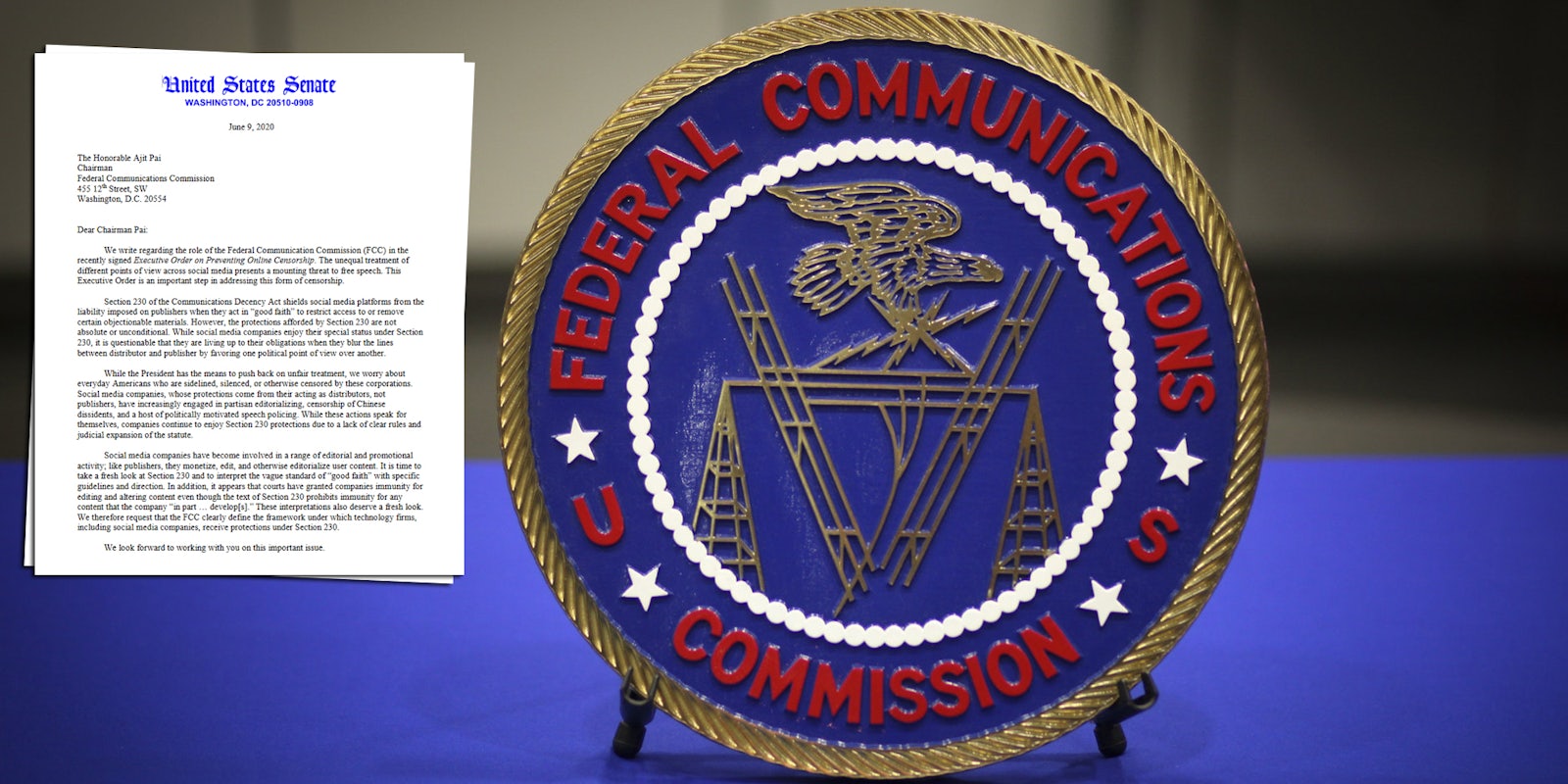A group of Republican senators are requesting that the Federal Communications Commission (FCC) “clearly define” how tech firms are granted Section 230 protections, piggybacking off President Donald Trump’s controversial social media executive order.
Sen. Marco Rubio (R-Fla.), Sen. Josh Hawley (R-Mo.), Sen. Kelly Loeffler (R-Ga.), and Sen. Kevin Cramer (R-N.D.) wrote a letter to FCC Chairman Ajit Pai on Tuesday.
The letter reiterates a number of claims the president has made about perceived bias by social media companies and that Section 230 protections should be reexamined. The president’s executive order came after Twitter fact-checked two of his tweets and said another one was “glorifying violence.”
Section 230 gives websites immunity from being liable for what third-parties post on them. It’s been hailed as an essential rule for the internet but has faced scrutiny from both former Vice President Joe Biden, Trump, and several lawmakers.
The senators’ letter essentially asks the FCC to do what Trump’s executive order does—which is already facing a legal challenge asserting that it is unconstitutional. Specifically, the senators ask the FCC to “clearly define the framework under which technology firms, including social media companies, receive protections under Section 230.”
Members of the FCC have given mixed signals about their support for the executive order, with Commissioner Jessica Rosenworcel, a Democrat, saying the order “does not work.”
It’s also unclear what exactly the FCC could do with Section 230, as it is part of the Communications Decency Act and therefore a law passed by Congress.
Commissioner Geoffrey Starks, a Democrat, said the Section 230 was “the law of the land” as Trump was signing the executive order.
Pai also said in 2018 he didn’t see the FCC regulating social media companies.
The Republican letter came the same day as Sen. Ron Wyden (D-Ore.), the co-author of Section 230, wrote an op-ed for CNN where he argued that without the law websites would either aggressively moderate content in an effort not to be liable for posts or stop moderating at all, allowing for the internet to become “a cesspool.”
READ MORE:
- Nearly 500,000 say Congress shouldn’t ‘kill encryption’ with the EARN IT Act
- Read the heartbreaking complaints Americans sent the FCC after their internet was shut off
- Trump doesn’t realize revoking Section 230 would get him kicked off the internet
- How the FCC is reacting to Trump’s social media executive order


